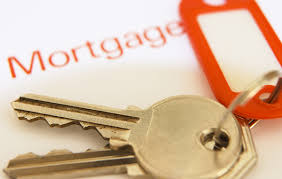How Mortgages Work: The Pros And The Cons Explained
Trying to decide if it’s wise to get a mortgage? Do you just hold on till you can afford it or risk falling into debt? The answers to these questions as well as the merits and demerits of taking out a mortgage will be discussed in this article.
For most people in Canada, it is quite hard to acquire property without taking out a mortgage, as not a lot of people can afford to invest tens of thousands of dollars all at once, given competing bills such as college loan payments and etc.
Mortgages are mainly used by two types of people: investors looking to raise funds for buying real estate, and existing property owners trying to raise funds for any purpose, while putting a lien on the property being mortgaged. This means that a legal mechanism is put in place which allows the lender to take possession of, and sell the secured property (“foreclosure” or “repossession”), to pay off the loan in the event that the borrower defaults on the loan or otherwise fails to abide by its terms.
Mortgages are used by individuals and businesses to make large, real estate purchases without paying the entire value of the property all at once. Over a period of years, the borrower repays the loan, plus interest, until he or she eventually owns the property, debt-free.
Usually, people’s unwillingness to enter into mortgages usually stems from the fear of repossession, but just like most things in life there are pros and cons to mortgages.
Pros
#1. A mortgage makes the process of acquiring property affordable
For most people, a home will be the biggest purchase they’ll ever make, and a mortgage will come in handy to make the purchase affordable. With a mortgage, you are able to spread the payments towards the house over a number of years.
#2. A mortgage is the most cost-effective way of borrowing
This is because a mortgage is secured against your property and interest rates tend to be lower for mortgages, than for other forms of borrowing. With a mortgage, the lender has the security that if you are unable to repay the mortgage, they can repossess the property.
Cons
#1. The fees
In addition to interest payments, you are expected to pay some other fees when getting a mortgage, and sometimes these fees may be very high. Some of the fees associated with mortgages are set-up costs, legal fees, insurance costs, and penalties if you decided to modify or renegotiate the terms of the mortgage agreement.
#2. You pay back much more than you borrowed
Like any other loan, mortgages come with interest and at the end of the term, you’ll have paid back the original loan amount, plus accumulated interest.
Conclusion
Mortgage loans are a flexible and cost effective solution for acquiring property, particularly if you’re not in great financial condition. However, it would be wise to consider your current income level as well as your expected future income level, to accurately determine the amount of mortgage that is safe to enter into.





